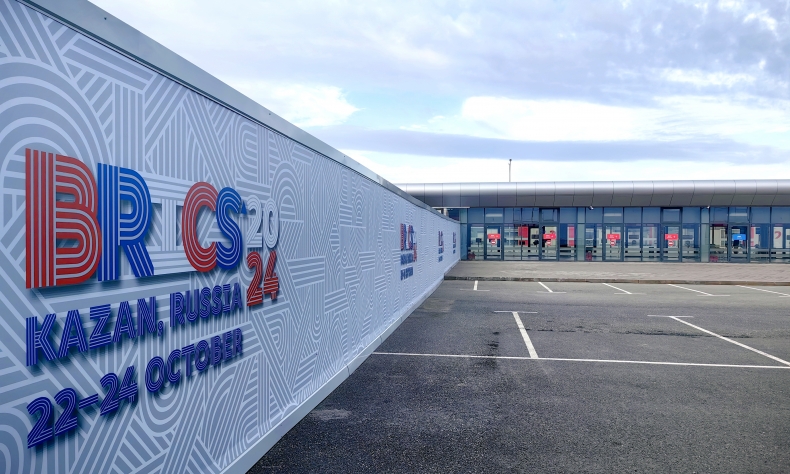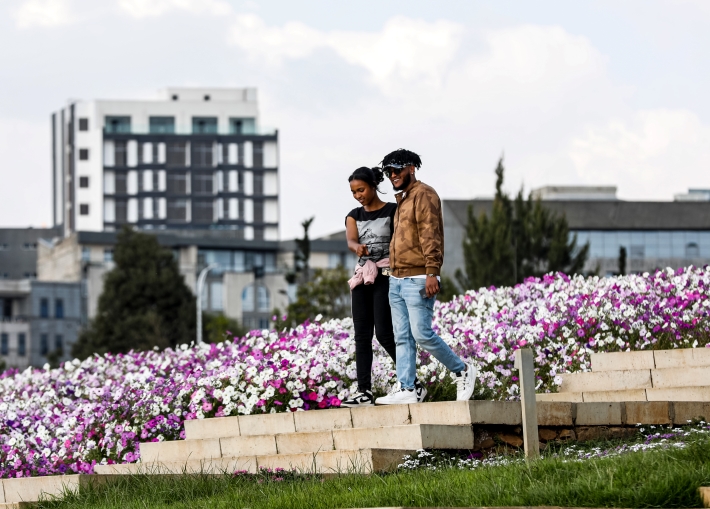An Open Platform

In general, the 16th BRICS Summit marks a pivotal moment in the development of the Global South and signals a new era of cooperation, empowerment and shared vision among emerging economies.
The 16th BRICS Summit, which took place in Russia, Kazan, from 22 to 24 October, is significant for several reasons. It is the first meeting after the expansion of the BRICS grouping, involving several heads of state and over 20,000 participants from 33 countries. This summit underscores the role of the BRICS as a “non-Western” entity that is not inherently “anti-Western”, signalling a new era for the Global South to gain strength through solidarity while jointly promoting global peace and development.
The group emphasises that it is “not a closed club” and has been committed to openness and inclusivity since its inception, reflecting its commitment to promoting cooperation between different nations.
The summit marked a defining moment for the BRICS as leaders discussed strategies to promote a multipolar world and agreed to support the expansion of the New Development Bank, reaffirming the group’s commitment to promoting sustainable development and a more equitable world order for the Global South. The leaders emphasised the importance of strengthening multilateralism for equitable global development and security and underlined the need for the BRICS to act as a united force for the Global South. They called for joint efforts to reshape the international financial system, advocate trade in local currencies and promote sustainable development. They positioned the BRICS as an important player in the evolving geopolitical landscape while making it clear that they are not trying to be an anti-West entity.
China’s role
The summit also emphasised China’s proactive role in global governance and equity through initiatives such as the Belt and Road Initiative, which provides tangible solutions for developing countries that are often neglected by traditional Western powers. The participants of the summit also criticised Western hypocrisy on environmental policies, stressing that while they are committed to a green environment, they impose high taxes and tariffs on Chinese electric cars.
In his speech, President Xi Jinping emphasised the importance of the BRICS expansion and saw it as a milestone that reflects the changing international landscape. Xi called for a collective strategy to tackle global challenges and promote peace and development. He called for a focus on common security and emphasised that the BRICS countries must act as defenders of peace and de-escalate conflicts.
President Xi also proposed innovation, which he emphasised as crucial for high-quality development by announcing initiatives in artificial intelligence and industrial cooperation. Xi also emphasised the importance of green development and encouraged cooperation on clean energy and sustainable practices. He urged global governance reforms to ensure fairness and greater representation of developing countries.

The summit also emphasised the importance of prioritising people-to-people communication in the ongoing development of the BRICS. It emphasised that the BRICS promotes understanding and respect between member countries by fostering cultural awareness and acceptance.
The leaders also pointed out that the West is perpetuating neo-colonialism in Africa by imposing environmental agendas and technologies on developing countries without providing the necessary financial support. They argued that Western nations are forcing these countries to rely on their technologies and loans that come with harsh repayment terms, increasing dependency rather than promoting genuine development.
The summit also introduced the BRICS Partner Country status, which allows countries to engage with the BRICS without full membership or voting rights. Belarus was the first country to announce its partner status and several other countries, including Cuba, have expressed their interest. The potential candidates for this status, such as Algeria, Bolivia and Indonesia, represent a significant proportion of the world’s population and gross domestic product and underline the growing interest in the BRICS as a platform for cooperation and development.
In general, the 16th BRICS Summit marks a pivotal moment in the development of the Global South and signals a new era of cooperation, empowerment and shared vision among emerging economies.
Ethiopia’s membership
Ethiopia’s accession to the BRICS Plus marks a significant milestone in its quest for economic growth and international collaboration. As the country operates in a multiplex geopolitical landscape, its motivations for joining this influential group go beyond mere affiliation. They also include the pursuit of greater development, investment opportunities, and improved diplomatic relations.
Ethiopia’s decision to join the BRICS has been interpreted by many analysts and commentators through various lenses. In my view, the most compelling reason for Ethiopia’s involvement in the BRICS mechanism lies in its strategic economic ambitions. By joining this group of emerging economies, Ethiopia is actively pursuing a path towards increased international collaboration and engagement. Ethiopia’s bid signals its intention to be an active player in shaping the global economic landscape, seeking not only to diversify its partnerships but also to leverage the collective strength of the BRICS members to further its own development goals. Ultimately, Ethiopia’s decision can be seen as a calculated move to secure its economic future in a rapidly changing global environment where cooperation and solidarity among emerging economies are becoming increasingly important.

Ethiopia’s potential membership in the BRICS promises to significantly accelerate the country’s socio-economic development through various channels. One of the most influential channels is the prospect of more foreign direct investment. The BRICS countries, known for their emerging economies, offer Ethiopia a unique platform to attract investment by taking advantage of the country’s young, low-cost labour force and abundant natural resources. This alignment is timely as Ethiopia is in the midst of a robust industrialisation process and significant infrastructure improvement. These developments coincide with the investment interests of the BRICS countries, particularly in key sectors such as manufacturing and agriculture, which are critical to Ethiopia’s economic transformation.
Furthermore, BRICS membership could facilitate deeper South-South cooperation, enabling Ethiopia to engage with other emerging economies in innovative development models that challenge the traditional donor-recipient paradigm. This shift could enable Ethiopia to forge partnerships based on mutual benefit and common interests and improve its access to various markets and cutting-edge technologies. Such cooperation is essential for promoting sustainable development initiatives that are in line with Ethiopia’s national goals, particularly in areas such as renewable energy, agricultural innovation, and technological advancement.
Furthermore, Ethiopia’s integration into the BRICS framework could significantly improve its trade logistics and strengthen its position within global supply chains. As the country strives to diversify its export base beyond a narrow range of commodities, improved trade relations with the BRICS countries could play a crucial role in addressing existing challenges related to its participation in the global economy. By fostering stronger trade relations, Ethiopia could not only increase its economic resilience but also create a more stable and diversified economic landscape. Overall, joining the BRICS represents a strategic opportunity for Ethiopia to advance its socio-economic development and reshape its role on the world stage.
In conclusion, Ethiopia’s membership in BRICS Plus is a decisive step towards achieving its development goals and strengthening its position in the global economy. The rationale behind this strategic move, from seeking financial support to fostering international partnerships and promoting sustainable development, underscores Ethiopia’s commitment to overcoming its challenges by working with like-minded nations.
The author is Communication and Publication Consultant of Policy Studies Institute, and Faculty Member, Addis Ababa University, Ethiopia.
 Facebook
Facebook
 Twitter
Twitter
 Linkedin
Linkedin
 Google +
Google +










